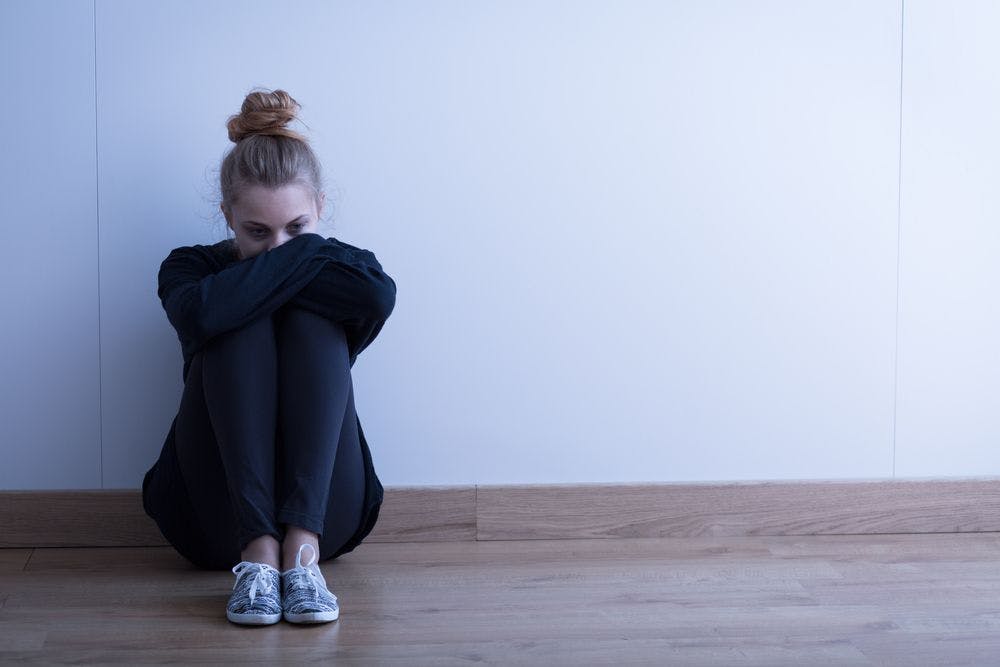7% of children have attempted suicide by the age of 17, and 1 in 4 have self-harmed
updated on Feb 26, 2021

As the number of children who have attempted suicide or self-harmed continues to rise, we take a look at why this might be, and get expert advice on supporting the young people in our lives
According to a paper published in the British Journal of Psychiatry, 7% of children have attempted suicide by the age of 17, and one in four shared that they had self-harmed in the past year.
Taking a closer look at the findings, researchers found that there was a higher prevalence of severe mental health difficulties in adolescent females (28.2% of females self-harmed compared to 20.1% of males – and 10.6% of females compared to 4.3% of males attempted suicide). In addition, they discovered a marked risk among LGBT+ adolescents, with 55.8% reporting self-harming in the last year and 21.7% having attempted suicide.
These are devastating numbers, and yet the study’s expert predicts that these figures could continue to rise as a result of the pandemic – a time that has brought great distress for everyone, but particularly for young people whose routines, education, and support structures have been severely impacted over the past year.
Suicide and self-harm are incredibly complex matters. There is rarely a straightforward reason why someone might attempt suicide or self-harm. However, they’re usually linked to other mental health problems such as depression, anxiety, or as a result of stress or bullying.
Researchers from this study also note how the age 17 ‘marks an important age before many major life transitions, including the ending of compulsory education and, for some, moving away from home.’ Additionally, they note how at this age, young people make the transition from Children and Adolescent Mental Health Services (CAMHS) and move into Adult Mental Health Services, which can result in a gap in their care.

While these findings may feel shocking, for counsellor Frances Taylor – who specialises in working with children and young people – the trends are present in her practice.
“Thinking about suicide in children can be a difficult issue for parents to hear, understand, and consider how best to explore with children,” Frances says. “Self-harm and thoughts of suicide naturally evoke strong feelings in parents, causing worry and concern. It’s natural to want to fix it right now and is hard to digest.”
Reflecting on what happens in practice when a child opens up about self-harm or suicide, Frances says that the first thing she does is to clarify exactly how they are feeling. She explains how therapy gives young people the space they need to explore these feelings and can help them to normalise their experiences – helping them to then see their own value and the options that they have.
Considering how parents can support young people, Frances has the following advice:
“Parents can help support children by listening to them and letting them know they realise how this has impacted anxiety and future plans. Consider giving children a break from further pressure, such as clubs with an emphasis on more academic results.
“Allow young people to have space to have a mixture of time alone, doing positive activities, and family time in a way that is not too overwhelming.”
Both structural and social change is required if we are to make a meaningful difference to the lives and care of our young people. And while the tentative end of lockdown measures will bring hope for many, it’s likely that the knock-on effect will be felt for some time to come.
Finding help
-
If you, or someone you know, are in crisis and are concerned for your own/their safety, call 999, or go to A&E.
-
Young Minds – support and information on children’s mental health.
-
PAPYRUS – young people’s suicide prevention charity with free helpline.
-
Harmless – information and support for self-harm.
-
NSPCC – children’s charity with free helpline.
Connect with a counsellor using counselling-directory.org.uk

